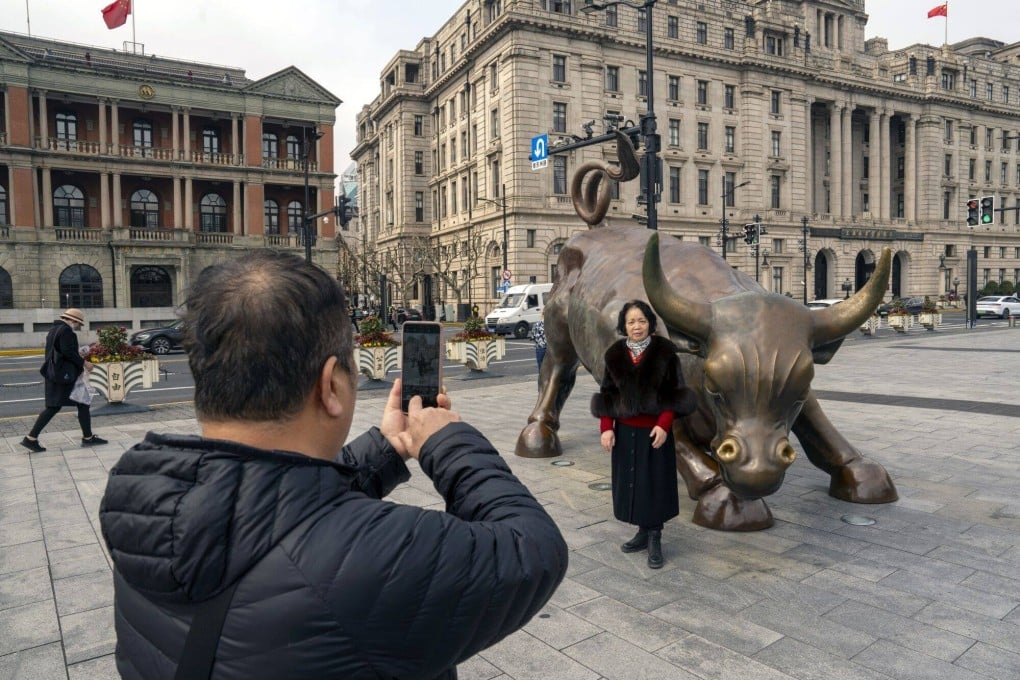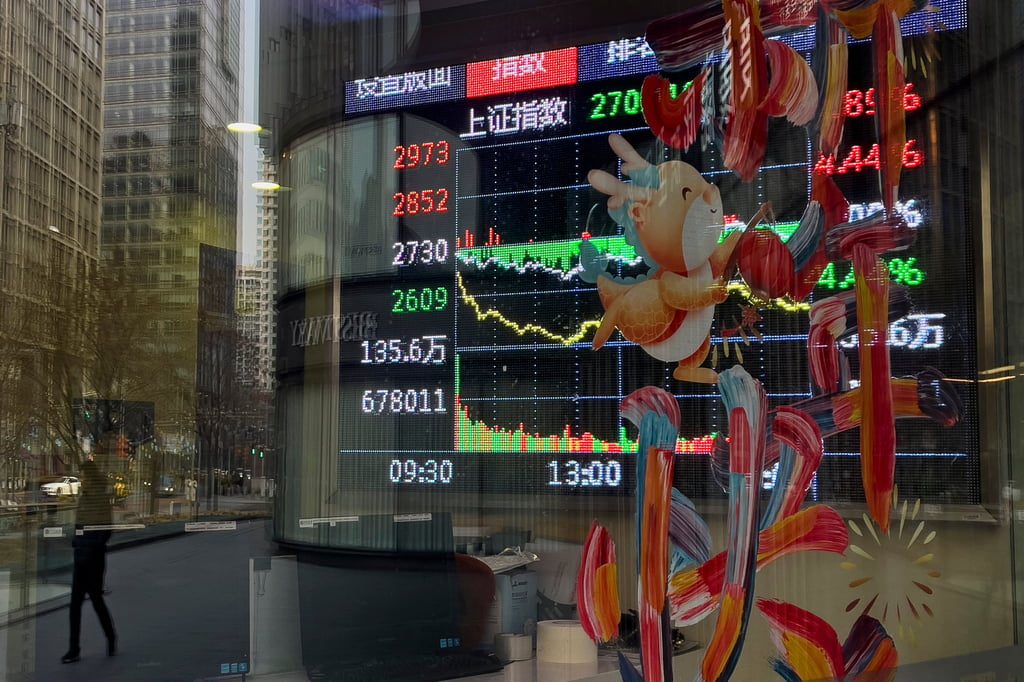China’s ‘national team’ seen stepping up stock market intervention after a sudden surge in assets at top exchange-traded funds
- Sudden inflows this year signal heightened intervention by influential state-run funds to support the nation’s stock market
- ‘In the near term, the national team is still likely to buy stocks to create a floor for index levels,’ Julius Baer’s Richard Tang says

Net assets at the nation’s top five ETFs, managed by E Fund Management, Huatai-PineBridge Asset Management, China Asset Management and Harvest Fund Management, stood at US$79.2 billion on February 9, according to a report published by Goldman Sachs.
The five ETFs, which track the CSI 300 Index and the Shanghai Stock Exchange’s top 50 stocks, reported combined net assets of 339 billion yuan (US$47.1 billion) at the end of 2023, 194 billion yuan on June 30 and 185 billion yuan on March 31 last year.
The sharp inflows are seen as a proxy for heightened market intervention by state-run funds, also called the “national team”, after a three-year market slump spilled into January this year.

“Direct government sponsorship is probably the most effective way to lift share prices and boost sentiment in the short-run,” Kinger Lau, chief China equity strategist at Goldman Sachs, said in a report. “More forceful and transparent policy easing and reforms, and boosting confidence in the private economy, are probably necessary to re-rate China equities in a more sustained manner.”
The state support, however, has yet to overturn major stock losses. The CSI 300 Index is still 0.6 per cent below where it started the year. Kweichow Mao-tai, Ping An Insurance, China Merchants Bank and CATL – among the top ETF holdings – are also trading at 1.2 per cent to 31 per cent below their June 2023 levels.